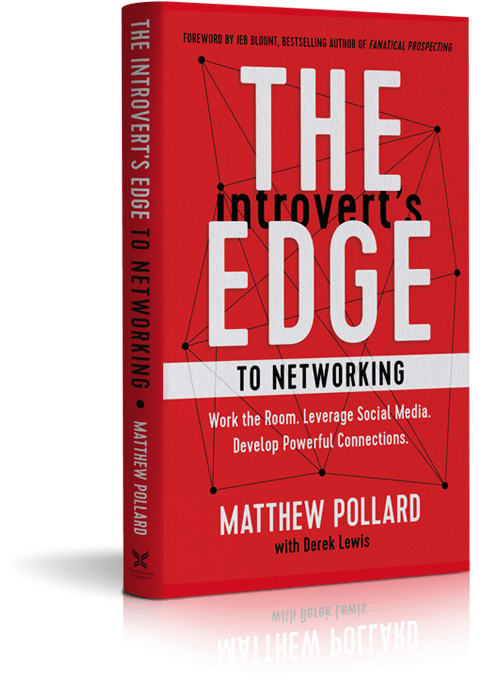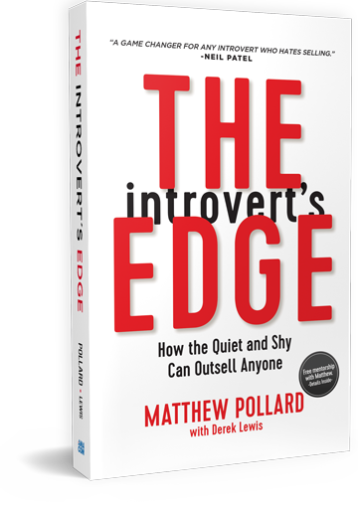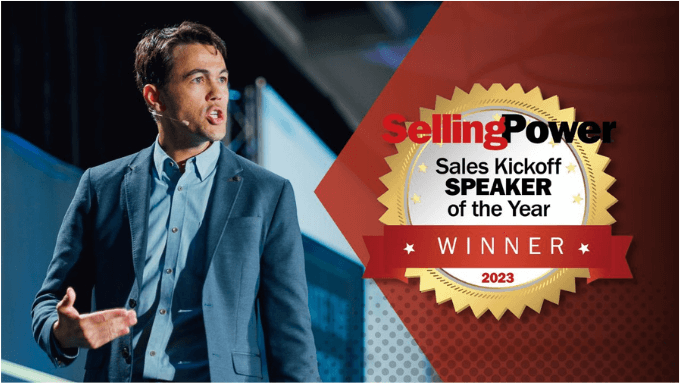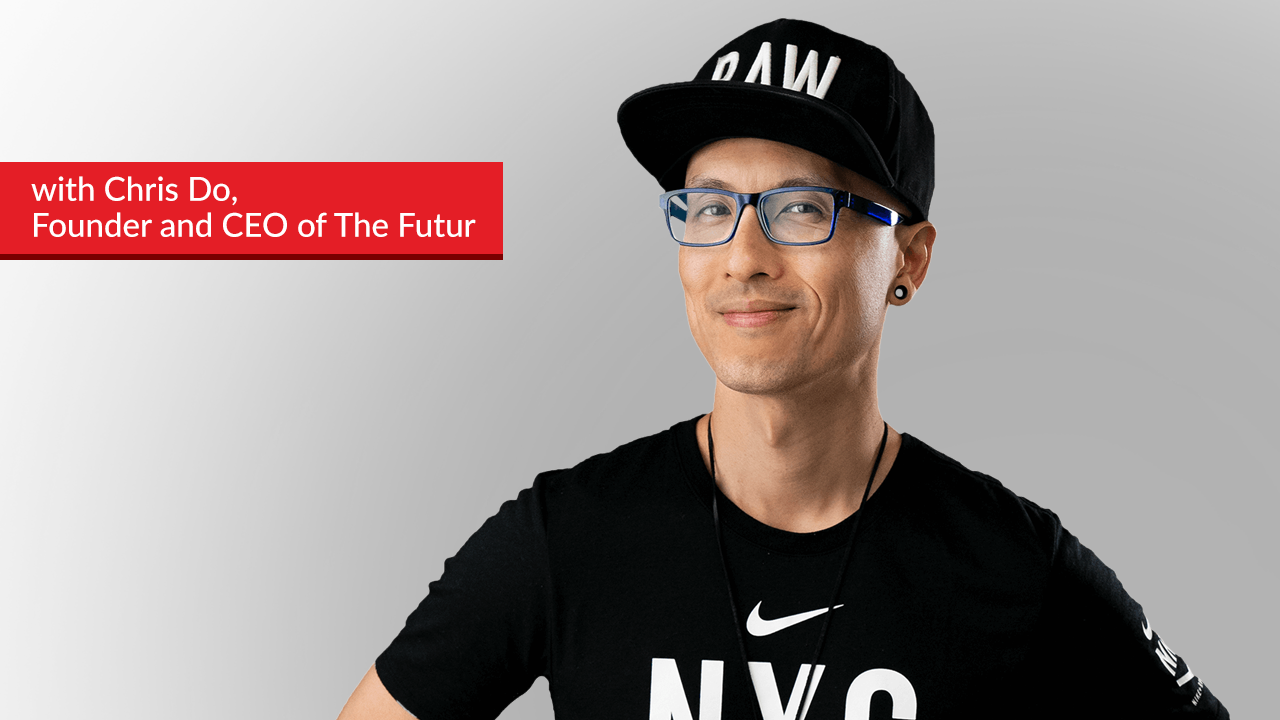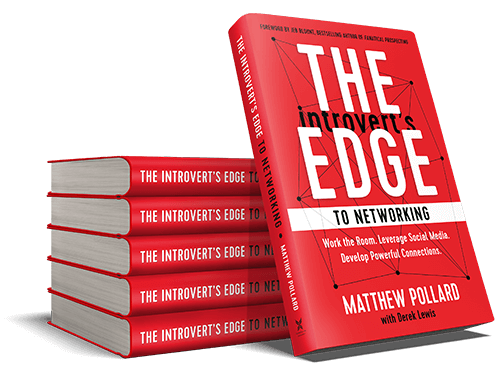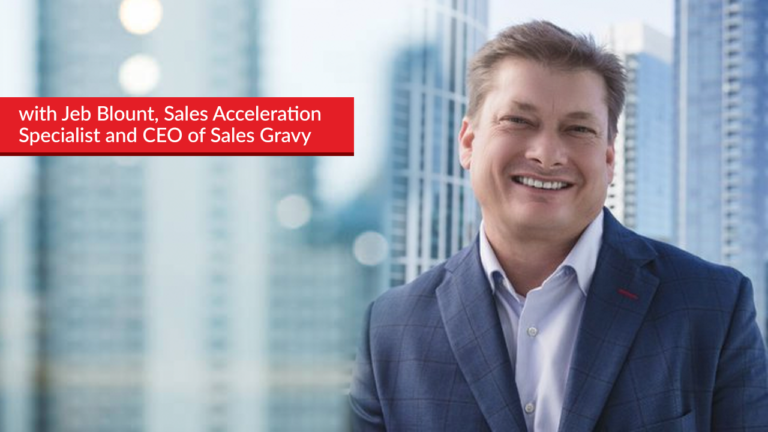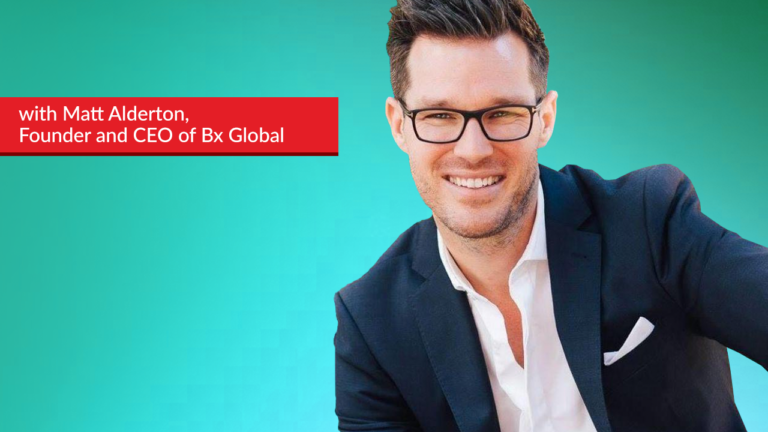Matthew: Hello, everyone, and welcome back to the Introverts Edge podcast. I’m excited to have you on with me again today. And I’m I’m blown away to have an amazing guest, Chris Doe, with me today. And I have to admit this is a super surprise and special guest for everyone that’s going to be listening today. I mean, this is an Emmy Award winning design firm founder, not to mention he has over 2 million followers almost on on YouTube.
A million followers, almost on Instagram. The guy spends his entire life trying to do something close to my heart, helping the average individual learn. They really can create a business doing what they love. So without further ado, Chris, welcome to the show, mate. I’m ecstatic to have you.
Chris: Thank you, Matthew. This is long overdue, but I’m really happy to be here.
Matthew: Yeah. Look, it’s my absolutely pleasure to have you on. And mainly, I mean, I know that you’re really passionate about helping the average individual, not just start a business, because lots of people could do that and have a horrible time in the business They’ve spent their life savings to create, but actually create a business that they love, where they get to do what they’re passionate about, which is near and dear to my heart.
Now I’ve watched a ton of your videos, and for those people that are watching and have heard of Christo for the first time, I would highly recommend you do so as well. But this is a really articulate guide. You’ll see that very shortly. And I think a lot of people are going to struggle to believe, just like they do sometimes with me, that the guy that they’re hearing from right now is introverted.
So let’s talk let’s talk about that a little bit, because you call yourself a loud introvert as well, which is also counterintuitive. So help us speak to like, how did you discover that you were introverted? When did you know? Was it later in life? Was it early? Childhood taught me through that.
Chris: Well, as an introvert, you don’t have to discover it. It follows you everywhere you go In some sign that you’re an introvert. One is you’re you don’t want to be seen. You don’t want to be the center of focus. And any time you’re put in a spotlight, virtually or figuratively or literally, you start to break out in a sweat.
And that’s what would happen. And so I’ve spent most of my young adult life up until about when I was 20 years old, just trying to be invisible. There are a couple of extraneous, extraneous circumstances that would contribute to this. One is I’m a first generation immigrant, so I was born in Saigon, Vietnam, came to the United States and grew up in a in a place in space in California where there weren’t a lot of people who looked or sounded like me.
And I always felt like an outsider and other, you know, not so friendly people would make sure I knew my place. Which can happen to immigrants from many cultures and countries. And so that environment did not help me in my introversion. It didn’t help me with my shyness. And I struggled. English is my second language in for a long time. All I did was just to keep my mouth shut.
And the reason why I now describe myself as a loud introvert is because people see all the content on YouTube and they can’t believe it. They just can’t. And so I’m going to put those two words together. I’m a person who’s learned to convert his introversion and yet be able to play in this big, brave world with all that where it seems like all the extroverts dominate.
Matthew: Absolutely. And that’s a really great story because I think that what you really kind of opening up to people right now is that to classify yourself as a successful introvert, a lot of people think they have to be loud. They have to be out there all the time. They have to be constantly speaking at networking events on stage and doing all that hard hustle work.
But what you’re really highlighting here is that they can be loud in a plain prepared way where they’ve recorded videos, where they’re in this, the world of social media, but they can do that in a way that really allows them to protect themselves how they want to, while sharing the right vulnerabilities as well.
Chris: Absolutely. And, you know, I just want to be sure that people don’t think because because you’re an introvert, it means that you’re kept out of the kingdom of success. I don’t know this for a fact, but I imagine Bill Gates is an introvert. I might even imagine that Steve Jobs is an introvert. I’m not sure an Elon Musk or some of the the most successful people titans of industry.
They might not be who you think they are because one is about how we manage our energy around people and the other is about how we manage our energy when we show up when we need to. It’s called being a professional. So when I do public speaking or if I’m teaching a class, I’m not going to let all my idiosyncratic insecurities or my lack of confidence and self-belief impact the way that I’m transmitting energy to people, because people show up for that.
So I have to play the part of an instructor or a public speaker or a leader in a business so that people have that confidence that you’re worth listening to. But it’s something that you build up over time, just like a muscle.
Matthew: Absolutely. And I can I can tell you right now, Bill Gates is absolutely an introvert and the founder of Tesla, definitely an introvert as well. But a lot of people focus on these these tech people. And you know what? There was some actual surprises for me because everyone knows introverted people. I mean, we’re not great at small talk, right?
Yet Oprah Winfrey and Ellen DeGeneres are both introverted. You look at we can’t be comedians, right? We can’t be off the cuff. Exciting and fun. Yet Bill Murray, the guy that did Groundhog Day, is an introvert. So you’re 100% right. We’ve got to stop saying, well, hang on, I can’t be successful. I can’t be out there. I can’t do anything because I’m an introvert, because it’s not true.
What we’re doing is creating excuses for ourselves. Now, I think that a really important topic, especially when we talk about small business, is that a lot of times we create another form of excuse around. People don’t value us because of our introversion. People aren’t willing to pay us because we can’t articulate our value. And I, I know you spend a lot of time really digging into these topics with people that want to be in photography or other industries that a lot of times people believe you have to do it for the love.
I mean, there’s this joke in photography. The only time you make money is when you sell your equipment, right? So the big thing for me is really helping people believe they can make a great living doing what they love and really do, focus on what they’re passionate about, and they’ll make better money as opposed to doing what’s practical because they’ll hide it and they’ll likely make less money.
So help me understand, like you speak to a lot of people on this topic, What are some of the biggest barriers that you see, specifically introverts around valuing themselves and articulating their pricing?
Turning Your Emotional Energy Inward
Chris: Okay. So if you’re an introverted creative, which is almost synonymous, they generally are paired together. An introvert tends to struggle with articulating their value because they’re first, I’m just speaking for myself. Then we’re not comfortable just taking up any attention and the self-talk that we have that exists inside our head is constantly telling us, Don’t say anything, you’re not worth it.
And so we’re constantly battling that in. And so one of those things is we have to work through that to say, you know what? If we don’t learn to to love ourselves first, to be our own number one fan, we’re asking a lot from the other person. And it’s really difficult. My wife and I, we’d have discussions about this and she goes one time to try to cut me down a little bit.
She goes, Oh, you just love yourself so much. And that was meant to be an insult. It wasn’t to praise me. And the way that I responded to that was I had to process that and convert that energy in my mind. And I asked her something. I asked her a person who doesn’t love themselves requires you to love them more, and it can be very consuming.
Have you been around people like that before? And she goes, Yes. Do you like being around them? No, because there’s no room left for you. There’s no oxygen in the room. So I said, You want people, especially someone that you’re married to, to love themselves, because then you don’t spend all that energy trying to love them. And so I think we have to begin this internal dialog to learn to love ourselves, and then we can start to explore our passion and and channel our energy into that.
Why Succeed, If It’s at the Wrong Thing?
Because my feeling is, is, is if all things being equal, the person is more passionate, something is going to excel much more than the person who’s just kind of doing it because they were told, This is something you’re supposed to do because when times get tough it, you’re going to need that passion to get you over those humps and the ditches and the scraped knees and everything else.
You’re going to need that to push you forward to get through the difficult times.
Matthew: Absolutely. I mean, I’m always reminded of the Jim Carrey quote that, you know, you can fail it what you don’t love. So why not take a chance on what you love or you can fail at what you don’t like, so why not take a chance at what you love? Right. So the biggest focus for me is always saying, okay, I’m going to follow my passion.
But the thing that I find so often is people go, Well, that sounds a little woo woo. Like, I’m not entirely certain I can make money out of that. And following my passion, how does that actually even apply to business sometimes? Like, you know, I want to follow my passion, but at the end of the day, if I can’t explain what I do, if I can’t explain what my pricing is in a way that makes me feel comfortable, maybe I need to go back and work for somebody else.
And I know from from some of the videos you get people talking about, you know what? If I’m just selling a simple logo or what if somebody says, I’m not willing to pay for this amount and I want to get to that part in a minute. But what I find is a lot of like minded people, introverts, specifically, they struggle at the explanation of the value, right?
They’ll they’ll go into the framework of, here’s what I’m going to give in a bunch of jargon that no one understands and then say, So this is the price. And I feel like it’s a self-fulfilling prophecy. So I’m always teaching people to go back and do some planning and some preparation. So for the people that you’ve just convinced to go and follow the passion and follow a idea that they’re going to get to a point that they love to sell something will love to deliver on something.
What recommendations would you have when it comes to articulating my value because I can love myself, but if I can’t explain that, it’s still going to be a problem.
Chris: Okay, this is perfect. Then you set this up perfectly for me, and so I’m going to say it like this. You and I, we can agree on lots of different things, but there is no universal truth on beauty, fairness and value. And so when you asked me, Chris, why should I pay this much for this thing, my my response isn’t to say, well, let me tell you why, because I’m using my frame to describe to you what matters to me, and there’s no way I can know what it is that is important and valuable to you.
So my general response would be like, I don’t know why anybody would pay this. Is this connected at all to a problem that’s important to you? What is it that you value? Let’s forget that we’re going to talk about a logo for a second. Why are we even talking in the first place? And then this person would then articulate to you what matters to them.
And so the thing that I’m always thinking about is I want to find a big important problem that has some urgency relative to the person who’s sitting in front of me. What I care about has nothing to do with them at all. And so if they are going to push back and say, I don’t need this, I’m going to agree, I don’t think you need this either.
What is it that you do need then? So then all the conversation is centered around them. So a lot of times we make the mistake of directing all the conversation towards ourselves and then this is going to make you even more nervous. So the easiest thing to interpret extrovert, whatever it is, focus on the person in front of you.
Matthew: You know, I think that’s really good advice. I mean, I’m constantly telling people it’s not about you when you’re selling, it’s not about you. When you’re networking, it’s not about you. Ryan Dice was recently on this show and he spoke about the fact that he was terrified about getting on stage when he made it all about himself because he was worried about people judging him.
Soon as he realized that it wasn’t about him and that it was about giving value to the audience, all of a sudden the pressure was off because he knew he could do that. So when we’re thinking about this from the process of selling, it’s so vitally important because as introverts, we hate to talk about the value that we know we can offer as opposed to projecting it upon them and saying, Here’s what this outcome will do for you, which you can’t know unless you understand them more.
So is there something we can do that so we don’t get to that horrible uncomfortable? Well, hang on a second. You said it’s too expensive. You know, I’m a little bit confused here because if it was me, I’d be wondering. Well, no one wants to go through the multiple vendor process, the due diligence process, spending the time with the sales reps instead of or contractors and developers as opposed to their family and friends.
So they’ve actually invited them there for a reason. Is there something we can do to preface the conversation so that we don’t end up in that awkward price conversation or that uncomfortable? Well, why am I here then? Kind of mindset? Well, dialog.
Chris: Yeah. I think the thing that we need to do is we need to learn a new way of listening. And this is going to sound a little bit weird, but hang in there with me. Marshall Rosenberg, I believe that’s his name. He wrote a book called Nonviolent Communication, and he says that there’s going to be people who are going to speak to you in all different kinds of ways, but we can learn to listen to them differently.
So he says there’s only basically two kinds of communication that people do. One is they’re going to say thank you or the other is going to they’re going to be saying, please. So when you say, here’s my price, it’s $10,000. And if you’re getting any pushback, if they’re out, oh, my God, what a fair price. I want to sign on the dotted line right now.
That would be a thank you. No matter what else they say. It’s a please, please. Can I have more information, please? I’m having a hard time understanding what it is that you do. Help me out. So it’s a cry for help. And so if we can listen with those kinds of ears, it’ll prevent us from reacting emotionally to what is being said.
Because the natural default emotional reaction is I’m offended you don’t value what it is that I do. This is insulting to me. How dare you? And that’s not going to be a great place of a great mental space for building great relationships and dialog with someone. So try to interpret it. Is it a please or is it a thank you?
Matthew: That that’s really great. And I think that a lot of introverts feel uncomfortable when anything like this comes up because they automatically take it personally. Like if somebody is asking that question, it’s clearly an attack on their value, their ability to deliver, or at least that’s how they perceive it. Now, I’m going to ask this question because it’s easier said than done for a lot of people.
Right. So you’re saying don’t accept this as an attack on you, accept it as a request for more information or I haven’t got enough data to see the value. It’s something that they’re not seeing. But that requires emotional regulation. It requires is a foresight in potentially one of the most emotionally totaling, uncomfortable, stressful situations that the average introvert is going to find themselves in.
So, Chris, is this something that you always knew and always did, or is this something that you had to learn through trying it out yourself? And how did you learn to regulate yourself at that action point and say, okay, I’m not going to perceive it this way, I’m going to perceive it this way instead?
Chris: Yeah, I think I can remember very early childhood memories when I was experiencing a very strong emotional emotion, like regret and having the internal dialog. And the example I like to give is like, I think I’m seven or eight years old and I misplace some of my money. And it was really bothering me because as a kid you don’t have any money, so money is really important to you and I went around the house looking for and I asked my mom, Mom, have you seen my money?
And she said, no. And I said, I think somebody took it. And then she kind of like comes down to my level and she’s talking to me. My mom’s a very sweet and gentle person. She says, Honey, do you think anybody in this family would take your money? I would put Dad, take it. Would your brothers take it?
I’m like, No. And so it made me really think about the kinds of questions I was even asking. I want to blame someone and not take responsibility. And so I was sitting there. I was just starting this to spin up in the negative dialog, the self-talk, saying, You’re so dumb, you’re so careless. How could you? You’re you’re fricking worthless.
These are kinds of things we would say to ourselves when when a negative outcome happens. Right? And I remember pausing and thinking, no amount of negative energy, no amount of beating myself up, is going to reproduce this money. It’s gone. So I have to move from an emotional, angry state to an accepting state so that I can move on.
And I. I had this thought, Is regret a useful emotion to feel? It’s like we’re longing for something that we can’t put back together. And so I made a decision there, like in my life, I’m going to try to live towards this thing where I’m no longer going to feel regret. I’m going to either learn or I’m going to win.
But those are my two options and I can’t win in this situation. So I’m going to learn. And ever since then, I’ve developed habits to keep things in a very specific place. I’m not quite OCD like that, but I put my keys in a certain place so I don’t have to worry about that. So that was the lesson.
And so over time that cause there. But I am influenced then by by other people things that I read and learn and through coaching, how I can harness that energy and the way that I look at it is you want to remain neutral and objective and even keeled in any negotiation, whether you’re talking about asking someone out or asking a client to sign on the dotted line, try to keep your energy in that neutral space.
Matthew: That’s really good value. I think that a lot of people let things go until the point that they react because they they they don’t let things go. They they they constantly hold onto them. And therefore, the regret from one element connects to the regret from the next and the next. And it can become paralyzing. So I think that what you’ve done is really interesting.
The first thing that you’ve done from the very beginning is you said, Well, I’m going to be a cause from this. I’m not going to be an effect from these problems all the time. So I’m going to decide what is it that I can do now to change that happening to me again? And by taking responsibility, all of a sudden the way you view the world is different.
And the second is, I mean, you could almost say you’re not sweating the small stuff, but if there’s nothing you can do about it, you’re letting it go. And I think learning that at an early age is really powerful because therefore you’re not taking in this negative energy as a problem. You’re saying, Well, hang on a second. If this was my fault, how would it be my fault?
And then what can I do about it in the future? Which bringing this back to the prize conversation, when somebody says that’s too expensive, you’re turning around and saying, well, if if this was, it must be my fault in some way, shape or form, because I know my value, love myself, and therefore I must have articulated it wrong because then not understanding it, how can I fix that?
And I think if people are really hearing this, that’s a really powerful tool. It’s learned to not sweat it. Come to a place of I’m at cause here and how can it be my fault? Because then I can fix it. When somebody says this is too expensive for me, it’s it’s it’s not fixable because they’re not seeing your value.
And that’s a place you just can’t come back from. So that was really great advice. Chris. I think one of the things that you talk about and you know, we get into the end of the interview for a second here, but there’s one question I really want to get from you, which is I know a lot of people especially I know you’ve got a lot of experience in the photography space.
A lot of times things happen where we’re trying to articulate our value in our pricing and people say, Well, I really just want one photo or I really just want one logo. How much is it for that? And I think you and I both know there’s a lot more work in that is a lifetime of experience to be able to do that one logo.
But there’s a lot of work around that and a lot of work around that Photo. How do you help the what would you suggest for the average introvert that’s getting asked for just one coaching session, one logo, one image, one something to reframe that conversation so that they see the value will see the work that’s required behind that.
Chris: I want to warn everybody, whether it’s intentional or unintentional, when someone else uses the word just, it’s to diminish whatever it is they’re going to say after that. So it’s just one photo. It’s just this little thing, right? And I think you need to be aware of that and remove that from your mind. Now when someone’s asking that and in that way they’re they’re looking to negotiate with you and you have to make a couple of decisions and you’re going to have to decide really quickly, is this the kind of person I want to work with?
Is this the person I want to share my gift with? And if it’s not, you can just simply bow out. You can say, I understand that this feels like it’s a lot of money relative to what you’re asking for. I’m probably not going to be a good fit for you, and you deserve to find someone who’s going to be as passionate about doing this for the amount of money that you want, as opposed to me, it’s just probably not a good idea.
Why would you ever say that? And people say that, Oh, Chris, you’re famous for telling people how to lose clients and go out of business. I’m not. Because what happens is you allow them to check themselves right in that moment. And oftentimes when you do that, they’re going to to then say, I’m not I’m not saying that I’m sorry.
It’s going to allow them to hit the reset button. So here’s the thing. If I were yelling at you, what is your natural default reaction? It’s to recoil. But if I whisper, your natural reaction is to lean in. So when you’re constantly defending yourself, proving yourself and responding in a defensive manner, it’s the equivalent of you yelling. And when you just say, you know what, it’s just not a good fit.
And you do this in a neutral, calm and kind tone that gives them a chance. Now, if they’re like, you know what? You’re right, I’m out of here. You probably have dodged a bullet because there are red flags that this project is not going to go well now it’s okay because we’re all kind of taught and socialized differently, that we should get a bargain and get a good deal.
And so it can just be interpreted the second way, which is they’re just negotiating with you. You have a couple of decisions to make. Now you can just say, I’m not saying you should pay this amount or that it’s worth it, but to get me to do it, this is going to be an amount. So I’m not going to lower myself into an argument because the minute I start defending myself, I’ve already begun to lose.
And then that’s when they get to say once again, okay, all right, all right, help me understand this. They’re coming back to the conversation now. If they’re looking for a concession for a lower price or something else, you can meet them. But then now we want to employ the give get principle negotiation. If I’m going to give you something, I need to get something back.
Because if you agree to give them something without getting something back in their mind, even though you’re doing them a solid, they’re thinking, Oh, they inflated the price, what else can I negotiate for? And that’s a slippery slope. So if you want to give them a lower price, you can say something like this. I can agree to lower the price backs percentage.
That’s the best that I can do. However, in order for me to do that, you need to pay me 100% upfront in cash. Oh, I don’t have cash. I can’t do it upfront. Well, then the price is the price. So it’s just a form of negotiation. So just remember when people use that word, just it’s to diminish whatever it is that you’re about to do or talk about whatever word that follows the word, just that’s what they’re doing.
It’s a negotiation ploy or tactic. You don’t have to bite.
Matthew: That’s really powerful. And I think what everyone hearing is again, here is coming back to cause not reacting, but actually being thoughtful and seeing what they’re doing. And I think that’s again, so, so important. I you know, the number of times that people I remember when I first started speaking and people would say, oh, you know, could you do it for a lesser price?
If you ever say yes, then they expect that price forever. And then they tell their friends about that price. And now you’re stuck in that price and they’re always the hottest clients. They keep asking for more stuff because they still think you said yes too quickly, where if you start saying, Well, I might be interested in that, except I would ask you to do instead, I would make sure that you had a can retain their record, the whole appearance.
So that I had that for afterwards. All of a sudden they’re now or I’m not sure if I could get a camera team there or okay, well, I might consider that. Oh no, I’m not willing to offer you any concessions. By the way. Can I have it cheaper? You start to get an idea of the kind of person they are and you will very quickly smell.
Oh, my gosh, this is going to be horrific to work with for the next 6 to 12 months. So, yes, I mean, exactly what Chris is saying, do not just accept them because they’re going to be a pain and but also realize that you can’t fire everyone. But if you have these conversations, all of a sudden you realize you end up with better clients and you have more time, you get paid hire, you have more time to look for the right types of clients for to fill in the gaps of the clients that you have.
So this is really valuable information. I hope everyone everyone’s taking a moment to really take this in. And obviously Christo has a ton of videos out on all of these different channels from Tik Tok to to YouTube, and I know he’s got a big clubhouse account now as well, so you can kind of listen to him a little bit more live.
But before we get into exactly where Chris would suggest most introverts discover more about him, you know, Chris, I have to ask you the question I ask everyone on the Introverts Edge podcast. You know, we’re all so used to talking about how bad introversion is, how much of a struggle it is, why it’s hard. I like to focus on what superpowers we have and how we harness them.
So I’d love to get an understanding of what you consider your introverts edge Wonderful.
Chris: Now, before I answer that question, I want to add to something in terms of the value conversation. Okay? You know, the thing is, it’s human nature to want things that we can’t have. It’s the whole business model in the psychology of luxury goods and luxury anything. It’s because fewer people can have it. We want it more. So the only real power you have as a creative professional is to to say no, to withhold your services.
And when you stand your ground, not in an aggressive way, not in a combative way, but you are not willing to make these concessions, the person is going to say, Well, of course I can afford this and I want this real life examples. This quite literally right now, my wife and I are if you put an offer into to buying a house, Right.
It’s a big deal. It’s the biggest investment you’re ever going to make in your life. And we’re not the highest offer. And the broker is telling us you need to come in at this or make this. And I just told my wife it wasn’t meant to be. It just wasn’t. I gave them my my best and final we’re going to withdraw.
And you know what immediately happened? The person who was messaging me is my wife saying the broker has come back saying, No, no, no, we really want you to stay in here. It’s the first move that we’ve made to express that, You know what? You can’t just push us around so much because we’ll find other things. We have options and that’s a lot of power that you have.
Don’t give that away. My introverts edge is this I don’t want to speak. So you know what I’ve developed really good listening skills and there’s a reason why we have two years and one mouth, and it’s quite powerful just to listen to people, to take notes and be attentive. And then they feel like I am the important person.
You get the credit for being the one who’s really interesting. Oftentimes when I’m just talking to clients, I’m just asking them a question and staying silent the whole time. And it’s a really powerful way to shift the the dynamic and how you can contribute value to the world. We always think that the extroverts have the advantage in speaking all the time, but when you’re speaking, you can’t learn.
It’s impossible. So let’s use our introvert power, our superpower, and just ask better questions and then be silent.
Matthew: You know, that is so valuable. I can’t tell you the number of salespeople that are extroverted that I’ve seen talk their way out of a deal just as well as they talk themselves into it in the beginning. So a lot of times we see these extroverts doing these things and they look successful, but they don’t necessarily deliver the results.
I mean, statistics say the most gregarious salespeople tend to be not the top performers. And that’s why there are so many amazing sales performers that are introvert. I mean, Zig Ziglar was introverted, right? So we all have the opportunity to excel, but we have to leverage our strengths, like listening. And it was very clear as we went through this interview, I hope you saw Chris was actually taking notes throughout the interview to make sure he covered often the points he now, if he was doing it slightly off camera, most people know I’ll make sure my video at least catches that once as they as they go back through and do the editing.
But the reason for that is he wanted to make sure we covered off on the point. Planning and preparation is not a bad thing. It means you’re answering the question. It means that you’re delivering value to whoever’s listening, but you have to listen before you can respond in an insightful way, which, you know, a lot of extroverts just talk.
They and they actually use that as a problem for themselves. They’ll say, I wish I spoke less and I could learn to listen more. You have that embrace it, Chris. It was absolutely an honor to have you on the show, mate. I know we’re going to have you back on the quietly influential summit and we’re going to be talking about social media because most introverts think that they can’t have active social media feeds.
So if you’re watching this, make sure you go to the quietly influential summit dot com and register for that free event. And you get to hear Chris talk about the power of social media and how he leverages being a loud introvert without having to be so loud. But for now, Chris, where would you recommend that people go to start their journey into the crypto world?
Chris: Wonderful. Thanks for asking. I’m on most social platforms, as you’ve mentioned before. I’m at the Chris Doe Deo on most social platforms. I would just start there.
Matthew: Terrific. Thank you so much for joining us, Chris. I so appreciate it. And to everyone listening, thank you for letting us use it yet again. And I look forward to seeing you on the next episode of The Introverts Edge podcast. Cheers, everyone.







